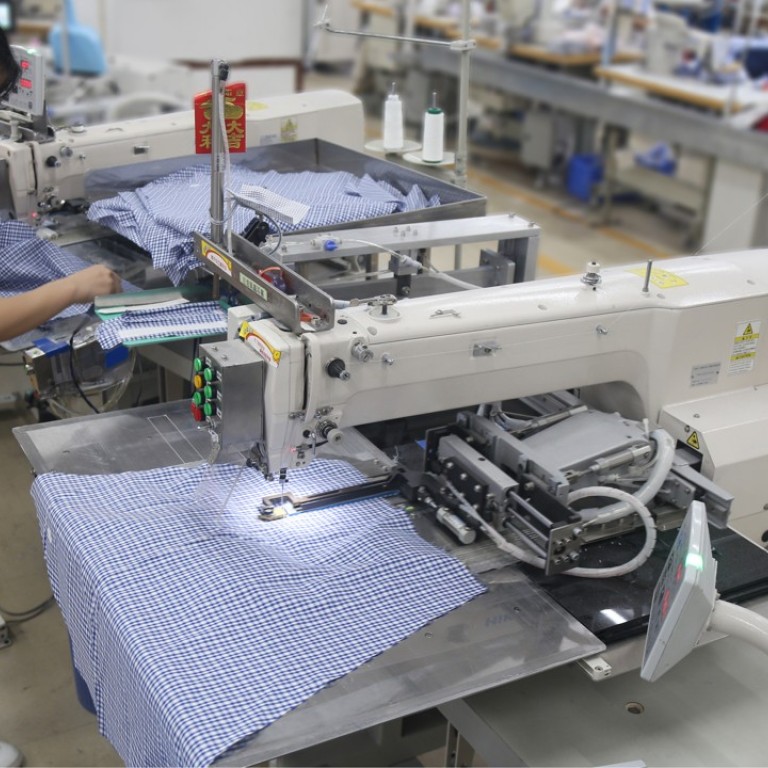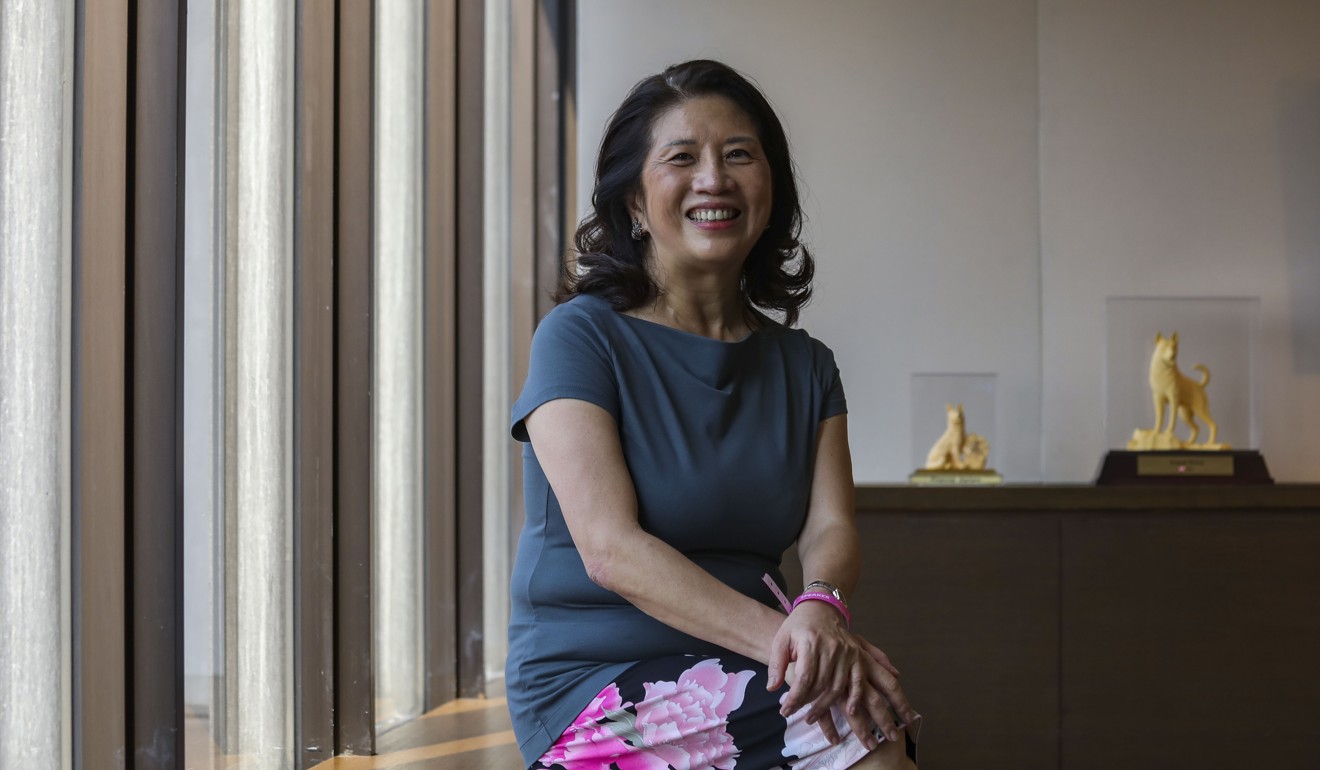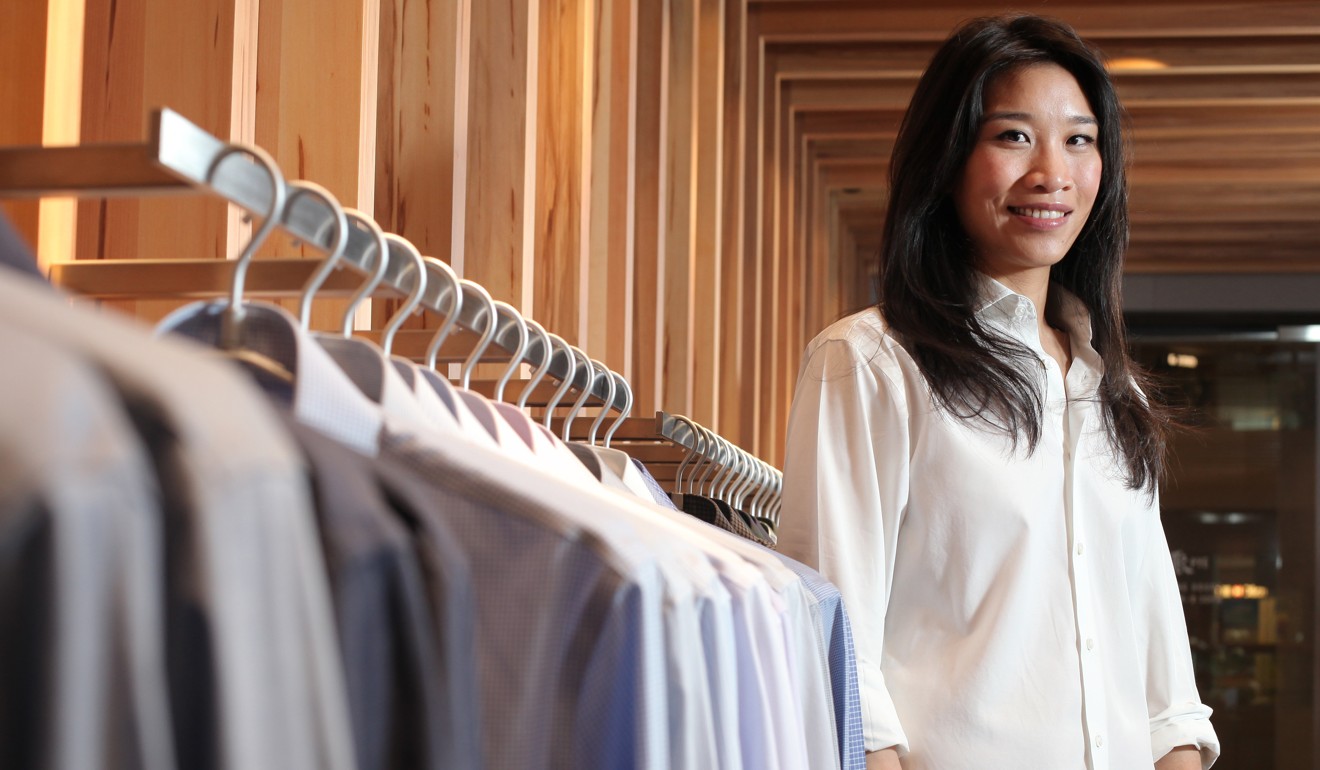
Hong Kong shirtmaker Esquel turns to robots to beat tariffs
Company bets on automation for its future
Unlike industries that are only now being affected by tariffs imposed by the Trump Administration on Chinese goods, as part of the US-China trade war, the clothing and footwear sector has been subject to hefty American import duties for decades. Apparel makers have, therefore, had to find creative ways around these levies.
Esquel Group, Hong Kong’s most prolific maker of cotton shirts, is putting a bold new plan into action – one that transitions from a low-cost business model predicated on favourable locations for production towards a robotic future. The company has invested in San Francisco robotics company Grabit with the aim of automating its production lines.
Men’s cotton shirts, a mainstay of Esquel’s overall production, currently face a thumping 19.7 per cent import tax in the US. With 41 per cent of the company’s revenue of US$1.3 billion being generated in the America (27 per cent comes from Europe), this is a mighty cost to deal with.
The company, founded by Hong Kong tycoon Yang Yuan-loong in 1978, took advantage of low-cost production, initially in China, and later in Vietnam, Sri Lanka, Malaysia and Mauritius. That was, and still is, how many Hong Kong apparel makers deal with competition and developed world import duties.
China textile maker embraces automation, the environment
Mauritius, where Esquel registered a subsidiary in the 1970s, is a relatively unknown case in point. The 2,000 sq km island in the Indian Ocean, population 1.2 million people, has long enjoyed preferential access to European and US markets, particularly in clothing, thanks to trade agreements such as the Multi Fibre Agreement of 1974 and the American Growth and Opportunity Act (AGOA), passed in 2000 and extended in 2015.
Under AGOA, apparel exports from Mauritius to the US are duty free. Domestic taxes in Mauritius were, and still are, very favourable. According to Stephen Scali, a consultant and lawyer specialising in doing business in Mauritius, it is possible for a company to reduce its tax rate there to just 3 per cent. And there is no withholding tax on dividend payments to non-Mauritius companies.
Not surprisingly, Hong Kong garment companies began using Mauritius in earnest in the 1980s, but this has diminished in recent years, according to Scali.
Esquel’s presence in Mauritius is also on the decline. According to Corporate Registry of Mauritius records, Esquel (Mauritius) Limited reported revenue of US$123.6 million in 2015. Last year, apparel exports from Mauritius to the US amounted to US$146.8 million, while Esquel Mauritius’s 2017 revenue fell to US$87.3 million.

At the same time, Marjorie Yang, founder Yuan-loong’s daughter who took over the reins in 1995, has been championing what she calls a technology centric approach to the age-old industry.
“We are staying there because of the African growth initiative,” she says of Esquel’s still strong operations in Mauritius, in an interview with the South China Morning Post.
Yang refuses to go into details about how much the company’s taxpaying structure is dominated by its operations in Mauritius, but she does admit Esquel Group is still “living off my father’s strategies”.
“When Esquel started, we had a lot of poor people who had no choice but to work for us,” she says. In more recent years, however, she says, her business has been championing the use of technology, an approach she says many of her peers in Hong Kong have studiously avoided. “They moved to poorer countries, [and] have never looked at other options,” she says.
The plain white shirt is a best seller for Esquel
A graduate of MIT’s mathematics programme and the holder of a Harvard MBA, Yang has cut an iconoclastic figure among Hong Kong’s tycoon class since taking over the chairmanship of Esquel.
At first doubtful about entering the garments business, she has emerged as the matriarch of a Hong Kong family business dominated by its women – a rarity in Asia – since her father’s death in 2007. Her sister Teresa sits alongside her on the board as vice-chairman, and her daughter, Dee Poon, runs Pye, a high-end branded outlet for Esquel shirts in China.

Rather than build a multifaceted conglomerate, as many Hong Kong companies have been tempted to do, Yang has focused on cotton shirts, investing instead in supply chain control and technology.
Esquel is working to automate its production lines. This will enable it to place its factories where its customers are
In 1998, Esquel became a joint venture partner in a 22 sq km cotton farm in western China, and has since invested in genome sequencing for cotton.
She has also steered Esquel towards a greener future. In 2012, it committed US$320 million to building an ultra-modern factory and R&D centre in Guilin, in China’s Guangxi Zhuang autonomous region, which will eventually double as an eco-tourism park.
And this hi-tech strategy could now pay dividends when it comes to accessing major markets. Two years ago, Esquel became an investor in Grabit, which has developed a sensitive gripping mechanism for robots using electrostatic adhesion – the same force that makes balloons stick to the ceiling.
This technology will make it possible in the near future for robots to handle and manoeuvre fabrics, a highly tactile job that has so far eluded automation. While robots in production lines have been handling solid objects for years, handling fabrics is much trickier and continues to require manual labour, forcing apparel makers to use low-cost production locations.
Grabit’s robots could potentially do things like folding fabrics or smoothing a piece of cloth to ensure no wrinkles during stitching. Its chief executive, Greg Miller, described Esquel as a “very active partner” in the business, but declining to disclose how much Esquel had invested, saying only that it was a “fair amount”.
“Esquel is working to automate its production lines. This will enable it to place its factories where its customers are,” Miller says, adding that Grabit already had production lines in place for Nike, and that a robotic line for shirt production would be ready to roll next year.
Another company, Atlanta-based Softwear Automation, has developed “sewbots” using specialised machine vision technology. Grabit and Softwear are among the very few that have developed such technology, and the latter has partnered up with Hong Kong supply chain giant Li & Fung, which is in the midst of a three-year plan to create a “supply chain of the future”.
Li & Fung, which generated two-thirds of its revenue from garments and is a major supplier of global retail giant Wal-Mart, announced a strategic partnership with Softwear in May. And although Li & Fung declined to comment on the nature of the deal, Softwear’s chief commercial officer, Peter Santora, described the Hong Kong company as a “customer”.
“They are looking at supply lines that go from social media to factory and back again,” Santora says, adding that the Wal-Mart Foundation gave money to the research project that led to Softwear in 2014.
The way forward
Some of the biggest brands in the global apparel industry, which employs as many as 75 million people worldwide, are exploring automation. Sportswear giant Adidas already has fully automated factories operating in Germany and the US for these respective markets, and although the company said it would continue to source shoes from Asia, it expects these new so-called Speedfactories to ramp up production and possibly reduce manufacture times for new shoe models from 18 months to a “matter of days”. Of course, that US presence means it can also bypass crippling US tariffs once and for all.
Esquel isn’t the only Asian company planning highly automated apparel making. Last year, Tianyun Garments of Suzhou, a Chinese supplier of T-shirts to Adidas, announced it was building an automated T-shirt factory in the US, using sewbots supplied by Softwear.
Softwear’s Santora estimates that at a production cost of just US$0.33 per item, a T-shirt factory can make back its initial investment within a year.
All these facts are certainly not lost on Yang. “We are going through a transitional phase,” she says. “At the end, it will show in the bottom line. You go through a dip in transition. You spend a lot of money.”
Where the race in the apparel business was once about finding new low-cost production and market access, the new race will be won when Hong Kong-owned, fully automated clothing factories start popping up in the US and Europe.

